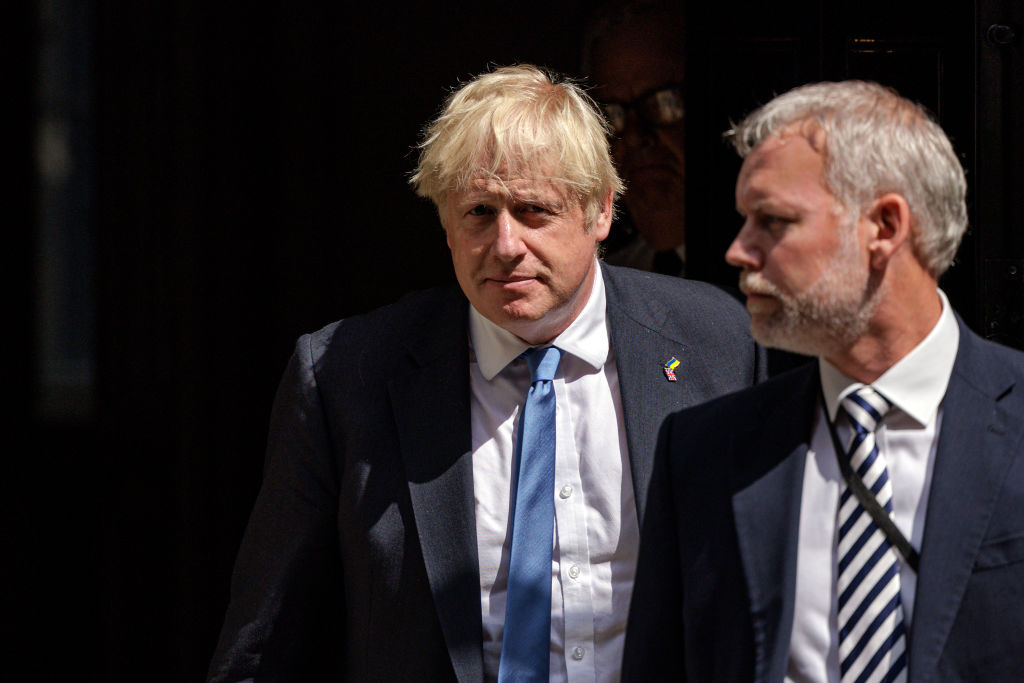
THERE’S always an awkward moment when you start a new job, and someone comes round asking you to contribute to a collection for someone you barely know. That moment came unusually quickly for the dirty double dozen that Boris Johnson shuffled into the Cabinet room, with ministers who had been serving him for less than a fortnight being asked to fork out for his leaving present.
They played it safe by getting our journalist turned prime minister some rare first edition books written by Sir Winston Churchill. Johnson’s worship of the man who led Britain through the Second World War has always raised hackles from those who place the wartime leader on a pedestal. But for all his admirable qualities, Churchill was just as prone to reckless flights of fancy in his politics and chaos in his personal life, as Johnson is.
Indeed, the two men share more than that. They are part of an extremely rare group of prime ministers who were genuinely famous before they entered Parliament, never mind government. Admittedly, Churchill making his name as a wartime correspondent is slightly more impressive than Johnson’s despatches from Brussels for the Daily Telegraph or appearing on satirical television programmes. Their fame was matched with the length of their careers. That Churchill’s career in public life spanned the end of Queen Victoria’s reign to the beginning of the current Queen’s is legendary, but Boris Johnson’s longevity is similarly impressive. In an age that rewards freshness and tires of politicians quickly, he has somehow managed to be one of our most prominent media and political figures for nearly thirty years.
That fame and longevity was inevitably built on the ability to withstand setbacks that would end the careers of most politicians. Churchill set troops on striking miners, championed the doomed assault on Gallipoli, and supported Edward VIII during the abdication crisis.
Johnson meanwhile was recorded “humouring” a friend’s plan to have a reporter beaten up, lied about paying for one of his journalists to have an abortion during their lengthy affair, and had the police turn up to his future wife’s flat after neighbours complained about his drunken argument with her. No one could accuse Johnson of failing to take Churchill’s advice to “Keep Buggering On” to heart.
And Johnson’s dedication to the mantra will likely cause consternation for whoever does find themselves in Downing Street, as his spectre looms over them from the backbenches. His lessons from his idol are not over yet.
Nothing better demonstrated Churchill’s sangfroid than when he shockingly lost the premiership in 1945. He used the unexpected return to opposition to rebuild his finances and finetune his legend. He signed lucrative deals for his wartime memoirs and resumed work on projects delayed by the war. Those memoirs and his frequent speeches overseas were not only designed to defend his past record but sought to shape future events at the start of what became the Cold War.
Johnson will obviously not have the moral authority nor the prestige to roam the global stage in the same way. But he will have the same ability to shake off the most shattering of personal defeats, a similar genius for attracting attention, and a shared determination to earn money. Likewise, unlike his recent predecessors, his skills and personality will compel him to earn that money in public rather than through low-profile consultancies or directorships. Instead, his future will be resuming his lucrative career writing columns and books, appearing on television shows, and delivering humorous speeches.
This will, no doubt, be an awkward relationship to navigate. Theresa May also remained on the backbenches, and although her interventions have become more frequent, there were still far and few between. But each one of them garnered significant traction. Any grumbling from Johnson in future will no doubt be an easy way to snatch headlines for the soon-to-be-former prime minister.
And of course, Winston Churchill did much more than enjoy a lucrative retirement. He completed one final comeback by re-entering Downing Street after winning the 1951 general election. In his final Prime Minister’s Questions, a remarkably cheerful Boris Johnson ruled out the possibility that he would ever speak at the despatch box again.
But he used his final remarks to issue a forthright defence of his record in office and advise his successors to stay true to his stances on key issues such as the Atlantic Alliance, defence of Ukraine, Brexit, deregulation, and levelling up. It was a clear warning that should the Tory Party deviate too far from his legacy, Boris Johnson would not hesitate to criticise his successor and doom yet another Tory government.
The post Hasta la vista! Boris waves goodbye but casts a shadow for his successor appeared first on CityAM.
For all the latest Lifestyle News Click Here
For the latest news and updates, follow us on Google News.
